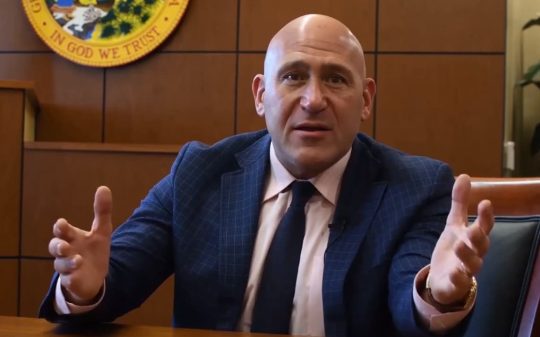Recommendations Of Our Truck Accident Law Firm Jacksonville: Steps To Take After An Incident
Being involved in a truck accident can be a disorienting and traumatic experience. However, understanding the steps to take immediately after a truck accident can be crucial in safeguarding your rights.
Ensuring Your Safety And Well-being
The first step after any accident is to ensure the safety and well-being of everyone involved. If possible and safe to do so, move away from the traffic and off the road. If anyone is injured, immediately call for medical help.
Gathering Important Information At The Scene
Once immediate safety concerns are addressed, start gathering critical information at the scene. This includes:
- Information About The Other Driver: Name, contact details, driver’s license number, and insurance information.
- Details About The Truck: Company name, truck number, and license plate.
- Witness Information: Contact information of any witnesses present at the scene.
- Photographic Evidence: Photographs of the accident scene, vehicle damage, injuries, and any other relevant details.
Reporting The Accident To The Authorities
Always report the accident to the police, no matter how minor it may seem. It provides an unbiased third-party account of the incident, which can be crucial in proving fault and liability.
Additionally, under Florida law, any accident causing injury or significant property damage must be reported to the authorities. Once the police arrive, provide a factual account of what happened without admitting fault or laying blame.
After these immediate steps, reach out to a Jacksonville Truck Accident Lawyer. He can guide you through the next steps of the process, including dealing with insurance companies and potentially filing a trucking accident lawsuit.
Having a knowledgeable and reliable Truck Accident Law Firm Jacksonville is key. Our Warriors for Justice will heartedly battle for your rights until we obtain the best possible outcome.
Maximize your compensation from a trucking accident by finding the responsible party. Get help from a Jacksonville Truck Accident Lawyer experienced in case law.
A Jacksonville Trucking Accident Attorney Will Assess Liability
Establishing liability in a truck accident case can be a complex process due to the number of potential parties involved. A Truck Accident Law Firm Jacksonville can assist in identifying the liable parties and proving negligence in truck accident claims.
Identifying Potentially Liable Parties
Unlike car accidents, where the driver is typically the liable party, truck accidents may involve multiple potential defendants. These can include:
- The Truck Driver: If the driver was negligent, for example, by speeding, driving under the influence, or failing to observe traffic laws.
- The Trucking Company: If the company ignored safety regulations, failed to maintain their vehicles, or encouraged unsafe driving practices.
- The Truck’s Manufacturer: If a faulty truck part contributed to the accident.
- Cargo Loaders: If improperly loaded or secured cargo caused or contributed to the accident.
Proving Negligence In Truck Accident Claims
To succeed in a trucking accident lawsuit, you typically need to prove that the defendant was negligent. This involves showing:
- Duty Of Care: The defendant had a legal responsibility to ensure the safety of others.
- Breach Of Duty: The defendant failed to uphold this responsibility.
- Causation: This breach of duty directly resulted in the accident.
- Damages: You suffered damages as a result of the accident.
A Jacksonville Trucking Accident Attorney can gather evidence to support these elements and establish negligence.
Comparative Fault And Its Implications
Florida follows a “pure comparative negligence” rule in personal injury cases. This means that if you are partially at fault for the accident, your compensation will be reduced by your percentage of fault. For example, if you’re found to be 20% at fault and awarded $100,000, you’ll receive $80,000.
A skilled Jacksonville Truck Accident Lawyer can argue against attempts to unfairly assign you a larger share of the blame, thereby ensuring that you receive fair compensation. With their in-depth understanding of the nuances of truck accident laws, these professionals are key to navigating the legal complexities of a trucking accident lawsuit.
Seeking Legal Assistance: Choose The Right Jacksonville Truck Accident Lawyer
You’ve been involved in a truck accident so finding the right legal assistance is crucial. This means choosing a Jacksonville Trucking Accident Attorney who is experienced, knowledgeable, and capable of guiding you through a trucking accident lawsuit.
Researching and Evaluating Potential Attorneys
When researching potential attorneys, consider the following factors:
- Experience: Look for attorneys who have experience handling truck accident cases, as they will understand the specific laws and regulations involved.
- Reputation: Read reviews and testimonials, and consider any professional awards or recognitions the attorney has received.
- Success Rate: Investigate the attorney’s track record. How successful have they been in winning cases or obtaining settlements for their clients?
A Jacksonville Truck Accident Attorney who ticks all these boxes would be well-equipped to handle a trucking accident lawsuit.
Initial Consultations And Case Evaluations
Once you’ve shortlisted potential attorneys, arrange initial consultations. These meetings provide an opportunity to discuss your case in detail and evaluate whether the attorney is a good fit for you. During these consultations, consider:
- The Attorney’s Approach: Do they take the time to understand your case, and do they offer a clear, well-thought-out strategy?
- Communication: Are they clear and upfront about the potential challenges and costs involved in your case?
- Comfort Level: Ultimately, choose an attorney with whom you feel comfortable. Trust and communication are crucial in a legal relationship.
With the right Jacksonville Truck Accident Lawyer by your side, you can navigate the complexities of a trucking accident lawsuit with confidence, secure in the knowledge that your case is in expert hands.
Why Choose Labovick Law Group To Win Your Case
At Labovick Law Group, we understand the immense stress and pain that a truck accident can cause. That’s why we’ve dedicated our practice to offering comprehensive legal assistance to truck accident victims.
We have many success stories and positive feedback from our customers. That’s why we are the highest rated firm in Google Reviews (4.8).
We have more than 30 years in the business and offices all over Florida so you can go to the one closest to you. When you choose us as your lawyer, you’re choosing a team that values your peace of mind above all.
Swift And Efficient Legal Service
We recognize the urgency in dealing with a trucking accident lawsuit. Our team acts quickly, performing thorough investigations and gathering all necessary evidence to build a solid case for you.
Minimizing Your Stress
Our primary goal is to alleviate your stress during this challenging time. We manage all the legal facets of your case – from filing claims to negotiating with insurance companies and representing you in court if needed. We contact you with the best doctors so that you receive the best treatment. This allows you to concentrate solely on your recovery.
Open And Regular Communication
We believe that clear and consistent communication forms the bedrock of a successful attorney-client relationship. At Labovick Law Group, we keep you informed at every step, ensuring that you understand each stage of the legal process. Our team is always ready to address any queries or concerns you might have.
No Win, No Fee
At Labovick Law Group, we operate on a ‘No Win, No Fee’ basis. This means that you don’t pay us unless we successfully secure a settlement or win your case. We believe in our ability to serve you effectively, and we’re willing to back that belief by taking on the risk ourselves.
Choosing Labovick Law Group as your attorney means you’re opting for a legal team that prioritizes your needs. Don’t tackle the complexities of a trucking accident lawsuit on your own. Reach out to Labovick Law Group today, and let us fight for the justice you deserve.
















